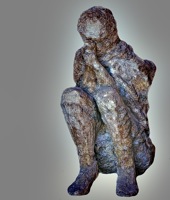Difference between revisions of "Caste"
(Created page with 'File:lighterstill.jpgright|frame ==Etymology== Portuguese casta, literally, race, lineage, from feminine of casto pure, chaste, from Latin ca...') |
m (Text replacement - "http://" to "https://") |
||
| Line 3: | Line 3: | ||
==Etymology== | ==Etymology== | ||
Portuguese casta, [[literally]], [[race]], lineage, from feminine of casto [[pure]], chaste, from Latin castus | Portuguese casta, [[literally]], [[race]], lineage, from feminine of casto [[pure]], chaste, from Latin castus | ||
| − | *Date: [ | + | *Date: [https://www.wikipedia.org/wiki/17th_Century 1613] |
==Definitions== | ==Definitions== | ||
| − | *1 : one of the [[hereditary]] social [[classes]] in [ | + | *1 : one of the [[hereditary]] social [[classes]] in [https://www.wikipedia.org/wiki/Hinduism Hinduism] that restrict the occupation of their members and their [[association]] with the members of other castes |
*2 a : a division of [[society]] based on [[differences]] of [[wealth]], inherited rank or [[privilege]], profession, occupation, or [[race]] | *2 a : a division of [[society]] based on [[differences]] of [[wealth]], inherited rank or [[privilege]], profession, occupation, or [[race]] | ||
:b : the position conferred by caste standing : prestige | :b : the position conferred by caste standing : prestige | ||
| − | *3 : a [[system]] of rigid social [[stratification]] characterized by [[hereditary]] [[status]], [ | + | *3 : a [[system]] of rigid social [[stratification]] characterized by [[hereditary]] [[status]], [https://www.wikipedia.org/wiki/Engogamy endogamy], and social barriers sanctioned by [[custom]], [[law]], or [[religion]] |
*4 : a specialized [[form]] (as the worker of an ant or bee) of a polymorphic social insect that carries out a particular [[function]] in the colony | *4 : a specialized [[form]] (as the worker of an ant or bee) of a polymorphic social insect that carries out a particular [[function]] in the colony | ||
==Description== | ==Description== | ||
| − | A '''caste''' is a combined [[social]] [[system]] of occupation, endogamy, [[culture]], social class, and [[political]] [[power]]. Caste should not be [[confused]] with [[class]], in that members of a caste are deemed to be alike in [[function]] or [[culture]], whereas not all members of a defined class may be so alike. Although [ | + | A '''caste''' is a combined [[social]] [[system]] of occupation, endogamy, [[culture]], social class, and [[political]] [[power]]. Caste should not be [[confused]] with [[class]], in that members of a caste are deemed to be alike in [[function]] or [[culture]], whereas not all members of a defined class may be so alike. Although [https://en.wikipedia.org/wiki/Caste_system_in_India Indian society] is often now [[associated]] with the word "caste", it was first used by the [https://en.wikipedia.org/wiki/Portuguese_India Portuguese] to describe inherited class [[status]] in their own European society. [[English]] caste is from Latin castus "[[pure]], cut off, [[segregated]]", the participle of carere "to cut off". Application to [https://en.wikipedia.org/wiki/Caste_system_in_India Hindu social groups] originates in the 17th century, via Portuguese casta "breed, [[race]], caste". |
| − | [[Discrimination]] based on caste, as perceived by [ | + | [[Discrimination]] based on caste, as perceived by [https://en.wikipedia.org/wiki/UNICEF UNICEF], is prevalent mainly in parts of Asia (India, Sri Lanka, Bangladesh, Nepal, Japan) and Africa. UNICEF estimates that such [[perceived]] [[discrimination]] based on caste affects 250 million people worldwide.[https://en.wikipedia.org/wiki/Caste] |
[[Category: Sociology]] | [[Category: Sociology]] | ||
Latest revision as of 23:43, 12 December 2020
Etymology
Portuguese casta, literally, race, lineage, from feminine of casto pure, chaste, from Latin castus
- Date: 1613
Definitions
- 1 : one of the hereditary social classes in Hinduism that restrict the occupation of their members and their association with the members of other castes
- 2 a : a division of society based on differences of wealth, inherited rank or privilege, profession, occupation, or race
- b : the position conferred by caste standing : prestige
- 3 : a system of rigid social stratification characterized by hereditary status, endogamy, and social barriers sanctioned by custom, law, or religion
- 4 : a specialized form (as the worker of an ant or bee) of a polymorphic social insect that carries out a particular function in the colony
Description
A caste is a combined social system of occupation, endogamy, culture, social class, and political power. Caste should not be confused with class, in that members of a caste are deemed to be alike in function or culture, whereas not all members of a defined class may be so alike. Although Indian society is often now associated with the word "caste", it was first used by the Portuguese to describe inherited class status in their own European society. English caste is from Latin castus "pure, cut off, segregated", the participle of carere "to cut off". Application to Hindu social groups originates in the 17th century, via Portuguese casta "breed, race, caste".
Discrimination based on caste, as perceived by UNICEF, is prevalent mainly in parts of Asia (India, Sri Lanka, Bangladesh, Nepal, Japan) and Africa. UNICEF estimates that such perceived discrimination based on caste affects 250 million people worldwide.[1]
